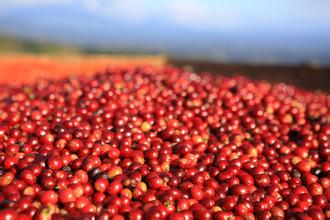Description of taste and flavor of Rwandan coffee beans with a small proportion of exports
Mr. Albert, the chief representative of the China Representative Office of the Rwanda Development Agency, said bluntly that the country's coffee exports to China accounted for a small proportion of its total exports when talking about Rwanda's coffee exports to China. "the annual export of coffee from Rwanda is about 30,000 tons, while less than 1,000 tons of coffee is exported to China, accounting for a very small proportion." Mr. Albert said, "the latest data we have is from 2008 to 2009, and the export value of Rwandan coffee to China is about more than 100000 US dollars, about 50-100 tons. In 2010, China imported a small amount of coffee, mainly well-packaged ripe beans. There are both raw and cooked beans imported in 2011. "
In the face of China, a huge emerging market, African coffee has been in a lukewarm, slow development stage, for many reasons. First of all, compared with the traditional Chinese tea culture, the rise of Chinese coffee culture is short and its influence is weak.
Whether a city's coffee culture is strong or not can be seen intuitively from its coffee sales. Just take Beijing and Shanghai, the two major cities of China, as an example. Shanghai had related coffee promotion in the 1930s, and coffee had already entered the Shanghai market at that time. The cultivation of coffee culture in Shanghai has experienced a history of more than half a century. The coffee culture in Beijing rises late and takes a short time to cultivate. When it comes to drinks in Beijing, people may still remember the big bowl of tea in old Beijing. The different coffee cultures of the two cities bring about completely different market sales. According to the head of a company that sells Ugandan coffee in Beijing, the sales of Ugandan coffee sold in Shanghai is much larger than that in Beijing, and can even double.
African countries lag behind in the field of coffee processing and packaging, and the lack of influential private brands is another reason for their slow development in China. Due to the backward development of most African countries in the field of coffee processing and packaging, the largest exports of African countries are still raw coffee beans. After international coffee processing enterprises buy back raw coffee beans from Africa, they process, package and brand them in their respective countries. When consumers finally come into contact with the finished coffee, it has changed into "Italian coffee", "American coffee", most people do not know the origin of coffee.

Important Notice :
前街咖啡 FrontStreet Coffee has moved to new addredd:
FrontStreet Coffee Address: 315,Donghua East Road,GuangZhou
Tel:020 38364473
- Prev

Introduction to the Variety treatment methods of Coffee beans in Gesha Manor, Banqimaji District
Bancimaji is located in a small village southwest of Ethiopia, and the Gesha Mountains in the northwest are the most primitive places of origin for geisha. This kind of sun-dried beans is carefully selected by the most original Gesha Estate manor. The owner of Gashaw farm carefully selects ripe coffee cherries, together with scaffolding sun treatment, so that the beans have a unique and distinct personality, different from the common Ethiopian days.
- Next

Introduction to the original taste and characteristics of Colombian coffee beans
An experienced bean baker will have an in-depth understanding of the original taste and characteristics of raw beans, and then present the best flavor of coffee according to its characteristics. From the origin of coffee, climate, altitude, the way coffee fruits are processed after harvest, to the water content of coffee beans during packaging, and the temperature and humidity stored at the export of coffee beans, all affect the taste of coffee roasted. So, an experienced person
Related
- Detailed explanation of Jadeite planting Land in Panamanian Jadeite Manor introduction to the grading system of Jadeite competitive bidding, Red bid, Green bid and Rose Summer
- Story of Coffee planting in Brenka region of Costa Rica Stonehenge Manor anaerobic heavy honey treatment of flavor mouth
- What's on the barrel of Blue Mountain Coffee beans?
- Can American coffee also pull flowers? How to use hot American style to pull out a good-looking pattern?
- Can you make a cold extract with coffee beans? What is the right proportion for cold-extracted coffee formula?
- Indonesian PWN Gold Mandrine Coffee Origin Features Flavor How to Chong? Mandolin coffee is American.
- A brief introduction to the flavor characteristics of Brazilian yellow bourbon coffee beans
- What is the effect of different water quality on the flavor of cold-extracted coffee? What kind of water is best for brewing coffee?
- Why do you think of Rose Summer whenever you mention Panamanian coffee?
- Introduction to the characteristics of authentic blue mountain coffee bean producing areas? What is the CIB Coffee Authority in Jamaica?

